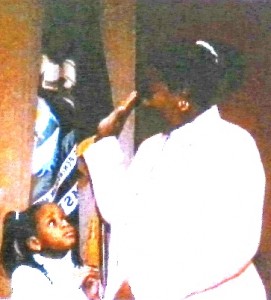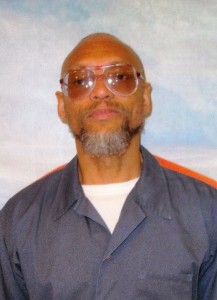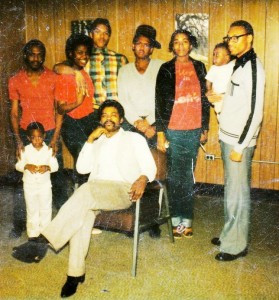VIDEO ABOVE: Bryan Stevenson, founder and executive director of the Equal Justice Initiative and a MacArthur Fellow, will argue the cases of Miller v. Alabama, 10-9646 and Jackson v. Arkansas, 10-9647 before the U.S. Supreme Court on behalf of two prisoners who were 14 when they were sentenced to life without parole. He also argued the companion case in Graham v. Florida, where the USSC ruled that juvenile life without parole is unconstitutional in non-homicide cases. Previously, the USSC outlawed the death penalty for those who were juveniles when they committed their crimes, in Roper v. Simmons.
By Diane Bukowski
March 18, 2012
DETROIT — Juvenile lifer Edward Sanders contacted me this past week to let me know that on March 2o, the U.S. Supreme Court will be hearing the appeals of juvenile lifers Kuntrell Jackson and Evan Miller, sentenced to life without parole (JWLOP) when they were each 14, in Arkansas and Alabama.
The key importance of these cases is that these children were charged with murder. Previous U.S. Supreme Court decisions in Graham v. Florida and Roper v. Simmons have respectively outlawed JWLOP sentences and the death penalty for non-homicide cases, while Jackson and Miller were convicted of murder.
“The oral arguments will be on C-SPAN, and they will be available afterwards for downloading,” Edward said excitedly.
I first interviewed Edward at least six years ago in an article for The Michigan Citizen newspaper. I was on his visiting list when he was serving his JWLOP term in the Mound Road prison in Detroit, later to be shut down. He was later transferred because his brother Richard, also serving life, was inadvertently moved from Ryan to Mound.
“I had not seen him in more than 30 years,” Edward said. “We tried to keep our relationship quiet, but they eventually found out. He and I both cried when I was transferred, it hurt so much to be torn apart again.”
Every time I visited Edward, I left with my heart ripped apart, wishing I could magically snatch him back home after the 30+plus years he had spent in prison. The U.S. is the ONLY country in the world that sentences juveniles to die in prison. It is one of the few countries in the world that even sentences ANYONE to life without parole.
I nearly cried when he told me what he remembered of his life before the age of 17, when he was sentenced to death in prison. It was in reality the only life he had ever lived.
“As the adult that I am now, Edward, then 45, said, “I look back every day and wonder how the juvenile that I was then was able to get me into this situation. I remember the church picnics, and the fun we had,” he said. “I remember my grandmother warning me and my brothers and friends not to be in the wrong place at the wrong time.”
His eyes and mind left the present and drifted back to another time.
Edward grew up in the Linwood neighborhood of Detroit. His mother was caught up in the genocidal drug epidemic fostered by outside forces including the U.S. government, the CIA and the Contra drugs for weapons deals that journalist Gary Webb gave his life exposing. His grandmother took over as grandmothers often do. (But meanwhile, why are the top drug dealers including U.S. government officials not serving life without parole?)
Edward was expelled from school in the sixth grade for breaking into the school. That’s a potent argument against the school to prison pipeline the Michigan ACLU has exposed in their book, and the current announcement by Detroit police chief Ralph Godbee that they are stepping up school suspensions to combat youth crime.
Edward was left to find his way on the streets. But Edward was very intelligent. He earned his college degree in prison before higher education courses were eliminated, and became a competent jail-house lawyer, even conducting classes for other prisoners.
He became a dedicated Muslim and has practiced the peaceful tenets of that faith ever since, praying at the specified times, avoiding pork, and exercising every day.
Even after he was nearly killed by another psychopathic prisoner last year, Edward went on to rank third in the prison’s recent sprints.
As to the crime itself, Edward and four friends went out one night and hit up every liquor store in the neighborhood. (who was jailing the store owners for selling to minors, or charging alcohol companies for aiding and abetting juvenile delinquency with the billboards they put up in every poor neighborhood?)
They were looking for a party they had heard about.
By the time they got to the scene of the crime for which Edward was convicted, they were not in their right minds. An argument with acquaintances led to the firing of a barely-functional gun, but not by Edward or three others in the car. A man fell dead.
Edward would not testify about the real shooter, although another man in the car did. The real shooter, badgered by the police to testify against them, tried to hang himself in the court lock-up on a lunch break.
Edward was locked up in 1975. It is now 2012, 37 years later. He wrote on the back of a photo he sent me recently “35 years and still holding.” Now, the U.S. Supreme Court may finally give him and thousands others like him a chance to see the light of day, for what is left of their lives.
On March 20, Kuntrell Jackson and Evan Miller’s attorneys from the Equal Justice Initiative will argue that the two did not have the capacity physically, mentally or psychologically to be responsible for first degree murder. (Click on earlier VOD post at http://voiceofdetroit.net/2011/11/12/us-supreme-court-agrees-to-hear-juvenile-lifer-cases-could-have-major-impact-in-michigan/ to read their stories. Both were sentenced for capital murder although they were not the shooters, as in Edward’s case.
Amicus curiae briefs on their behalf have been filed by the American Medical Association. Amnesty International, Former Juvenile Court Judges, the NAACP Legal Defense and Educational Fund, the American Parole and Probation Association, the American Bar Association, law students from the Moritz College of Law at Ohio State University, and the Juvenile Law Center, among others.
On the other side, Michigan Attorney General Bill Schuette requested leave to participate in the oral arguments, but was summarily denied by the USSC on March 5.
“The court’s March 5 rejection was quick, 10 days after Schuette’s office sought to participate in arguments that will help decide the fate of 2,500 inmates nationally,” wrote MLive’s John Barnes. “One in seven are in Michigan. Schuette’s office limited its comments to a short statement by spokeswoman Joy Yearout, who said Schuette acted at the request of the defending attorneys general of Alabama and Arkansas.

Wayne Co. Prosecutor Kym Worthy takes the oath of office as daughter Anastasia watches; Worthy testified against justice for Michigan's juvenile lifers
‘We will continue to defend and fight for justice for victims and their families at every opportunity,’ she wrote.'”
But Schuette is not fooling anybody. His attempt to intervene typifies the brutal law enforcement mentality endemic in this state. When hearings were held four years ago in the Michigan State Legislature on a package of bills that would have given juvenile lifers the opportunity for parole, Wayne County Prosecutor Kym Worthy, Oakland County Prosecutor Jessica Cooper, and Berrien County’s Prosecutor all testified against the bills.
Worthy sent her staff to an earlier hearing to show a video of an incident where Detroit teens beat a man to death at a Coney Island, enforcing stereotypes of Black youth held by most of Michigan’s out-state white legislators.
Arguing the Supreme Court cases will be Attorney Bryan Stevenson, Founder and Executive Director of the Equal Justice Initiative and a MacArthur Fellow. The video at the top of this story contains his comments. Stevenson argued Sullivan v. Florida, the companion case in Graham v. Florida, where the Supreme Court found juvenile life without parole was an unconstitutional, “cruel or unusual” punishment in non-homicide cases.
Barnes writes that three outcomes are likely: limiting the Supreme Court judgment to juveniles 14 and younger, limiting it to cases where juveniles were not the shooter, or focusing on states like Michigan, one of only 11 states in the U.S. that bars judges from considering age as a mitigating factor during sentencing. He also notes that allowing juveniles a chance at parole does not guarantee them a chance at freedom any time soon.
But VOD believes the battle must continue until, in the terms of Dr. Martin Luther King, Jr. “justice rolls down like water and righteousness like a mighty stream.” One day, rage at the sorrow visited on poor, Black, Brown and Latino people in the U.S., particularly the youth, will open the country’s prison doors just as French revolutionaries tore down the walls of the Bastille.
John Barnes of MLive.Com has led a team of reporters since last year to expose the plight of Michigan’s 350+ juvenile lifers. He and his team have given hope to them that they will not die in prison. To read his recent articles, click on (pdf).
VOD: click on the following links to read Supreme Court questions and state court of appeals decisions in the cases:
Kuntrell Jackson questions and Kuntrell Jackson v State of Arkansas
Evan Miller questions and http://willamettelawonline.com/2011/11/miller-v-alabama/.
Go to http://www.supremecourt.gov/oral_arguments/argument_transcripts.aspx and http://www.supremecourt.gov/oral_arguments/argument_audio.aspx to obtain transcripts and recordings of the oral arguments in the two cases after March 23, 2012.











